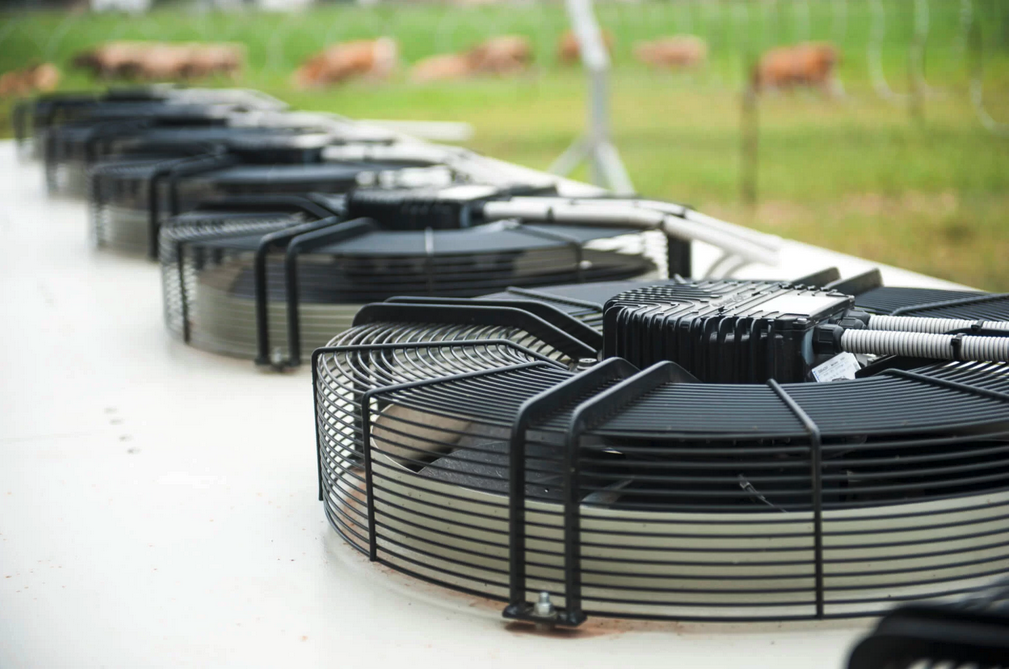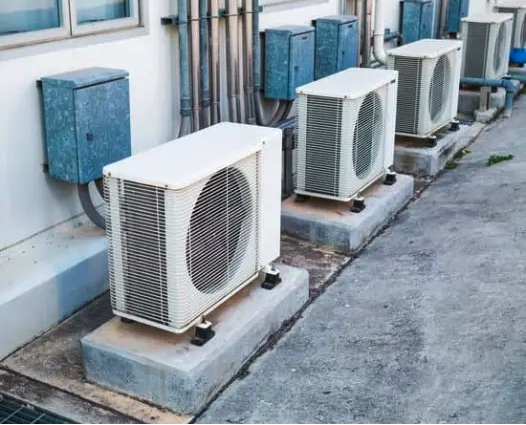A Revolutionary Solution for Africa's Cold Chain Challenges
Cape Town, South Africa - October 17, 2023 / Energy Partners (Head Office) /
Cooling-as-a-Service: A Revolutionary Solution for Africa's Cold Chain Challenges
Samuel Jacobs of Energy Partners highlights the urgency and transformative potential of Cooling-as-a-Service (CaaS) in addressing Africa’s cold storage challenges, a crucial aspect of enhancing food security across the continent.
The 'cold chain,' an intricate system that begins at the farm and culminates on the table, plays an indispensable role in preserving perishable products. In Africa, deficiencies in this system have direct repercussions on food security, with the Rockefeller Foundation revealing that 50% of staple foods are lost post-harvest or before reaching the market.
The underpinning cause? The scarcity of cold storage infrastructure and inefficiencies in the cold chain. This predicament not only diminishes the revenue for farmers but also exacerbates the wastage of crucial resources, including water, energy, and land. With one in five Africans grappling with hunger, Samuel Jacobs accentuates the necessity of resolving this cold storage dilemma.

The transformative solution? Cooling-as-a-Service (CaaS).
Cooling-as-a-Service (CaaS) stands out as a groundbreaking solution for addressing Africa's cold chain challenges. At its core, CaaS is an innovative business model where, instead of buying and maintaining cooling equipment, businesses 'rent' the cooling service. The responsibility for the cooling system—its operation, maintenance, and upgrades—falls on the service provider. In return, clients pay a fee based on the cooling they use.
This model offers a host of benefits. For many African entities, especially in agriculture, the steep costs of cooling systems are prohibitive. CaaS democratizes access to efficient cooling, making it affordable for even small-scale players. Furthermore, by ensuring equipment is consistently maintained at optimal efficiency, energy wastage is reduced, leading to fewer greenhouse gas emissions.
The broader implication for Africa's food supply chain is significant. Effective cooling is essential to reduce post-harvest losses and ensure food reaches consumers fresh. CaaS removes barriers to efficient cooling, enabling a more resilient and sustainable cold chain across the continent. By merging economic feasibility with environmental responsibility, CaaS has the potential to revolutionize Africa's approach to food security and cold chain management.

This revolutionary model offers numerous advantages:
- Economic Benefits: It liberates capital, minimizes operational expenses, and shields businesses from cost fluctuations.
- Operational Efficiency: Grants easy access to superior cooling technology, coupled with performance visibility through system efficiencies' tracking.
- Sustainability: Addresses Africa's pressing need for decarbonization, mitigating harmful greenhouse gas emissions and propelling a transition to eco-friendly refrigerants.
Given the colossal potential of CaaS, African leaders have exhibited a proclivity for framing policies promoting cleaner cooling technologies. For instance, the SADC Centre for Renewable Energy and Energy Efficiency (SACREEE) has embarked on initiatives like the Industrial Efficiency Program (SIEEP), with 21 African nations participating, to augment the adoption of CaaS.
Preliminary CaaS initiatives have borne fruit in countries like Nigeria, Kenya, and South Africa, dramatically curtailing food wastage. For instance, Cold-hubs in Nigeria, powered by solar energy, have remarkably prolonged the shelf life of perishables. Kenya's SokoFresh and South Africa's Energy Partners are other success stories illustrating the transformative impact of CaaS.
South Africa, despite boasting a robust cold storage infrastructure, grapples with efficiency challenges, emphasizing the pertinence of CaaS. Notably, South Africa's National Cooling Plan underscores servitization as a pivotal agent for change.
In conclusion, Jacobs stresses that for CaaS to achieve its full potential and ameliorate food security, scaling it up is imperative. The collaboration of financial institutions, policymakers, and development finance institutions is paramount to championing and mainstreaming CaaS in Africa.
About Energy Partners: Energy Partners, led by thought leader Samuel Jacobs, is at the forefront of exploring and advocating for cutting-edge solutions in the energy and cooling sectors, championing sustainable practices that drive Africa's growth.

Contact Information:
Energy Partners (Head Office)
Unit 2 White Oak Terraces, Old Oak Office Park 2 Edmar St, Bellville
Cape Town, Western Cape 7530
South Africa
Manie de Waal
+27 21 941 5140
https://energypartners.co.za/
Original Source: https://energypartners.co.za/media-room/#/media-room
